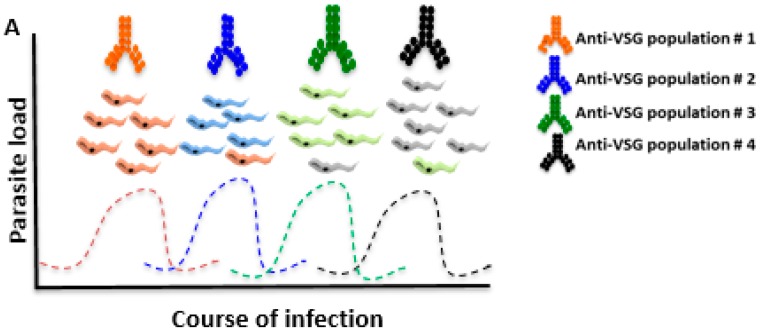Figure 1.
Host immunosuppression caused by coats change of variable surface protein (VSG). T. brucei is exclusively an extracellular parasite which constantly changes VSG to successfully evade the mammalian host’s immune system. After antibodies titer increases, the vast majority of parasites are eliminated and only parasites with different VSG coats survive. The bloodstream forms must survive as free-living by assuming a succession of proliferative and quiescent development. The VSG coat is highly antigenic and produces robust VSG-specific antibodies (Anti-VSG population), which participate efficiently in the processes of opsonization and parasite lysis mediated by the complement system. Anti-VSG antibodies contribute to the elimination of parasitic burden, however, a small proportion of the parasite population switches VSG coats, which stimulates a new antibody response to the prevalent new VSG population, and this process repeats until the immune system fails.

